The Circulating and Exchange of Knowledge and Techniques in Music and Literature during the Middle Ages and the Renaissance
27–28 January 2022, Poitiers
Call for Papers
Online conference and special issue of the journal Textus & Musica, dir. Océane Boudeau, Luca Gatti and Fañch Thoraval
The Circulating and Exchange of Knowledge and Techniques in Music and Literature during the Middle Ages and the Renaissance The upcoming issue of the Franco-Italian journal Textus & Musica, to be published in 2022, will address the question of the circulating of musical and literary objects (works, sources, etc.) in medieval and Renaissance Europe from the point of view of techniques and knowledge supporting their production. In a society where the shared cultural background (transmitted both orally and in writing) is constantly reshaped and where new creations (literary, musical, liturgical, or other) frequently borrow pre-existing materials, the question of circulating and exchanges is essential. Therefore, the production of new songs or texts often involves collective memory, or the reference to authorities, in a way that is nicely expressed in a phrase attributed to Bernard de Chartres: “we are dwarfs perched on the shoulders of giants”.
While this phenomenon is often studied from a geographical and human perspective— individuals are considered as vectors allowing the movement of an object from one cultural context to another—, the question of the transfer of techniques and knowledge remains a rather unexplored topic. Therefore, despite its aspiration to establish a comparative system capable of going beyond strictly geographical dimensions of national frameworks, the notion of “cultural transfer” introduced by Michel Espagne and Michael Werner did not always allowed to go beyond.
The articles to be published in the next volume of Textus & Musica will therefore focus on, not human and geographical aspects of displacement, but instead on its manifestations, that is, the artistic translations of exchanges in all their technical complexity. Literature and music will be studied from the perspective of craftsmanship, that is to say art based on techniques, the particular skills of musicians and poets. The object or the text, be it musical or literary, will be central of the questioning and will be subjected to meticulous analyses in order to highlight the circulating and exchanges that may have taken place. The author will take care to define what brings together or, on the contrary, distances the two objects (two works, two repertoires, two genres...) but also the cultural environment to which they belong. For example, in the case of the circulating of a refrain, it should be explained what allowed its transmission from one work—or even from one repertoire—to another. Were the two works considered similar in terms of genre, the meaning of texts, or any other factor? How was the borrowing carried out at a technical level? Was the meaning of the literary text or the melody modified in order to adapt to their new carrier? What do these possible arrangements—or their absence—tell us about the perception that artists had of the borrowed element, its carrier and the relationship between the two entities?
It will also be considered what distinguishes the “culture source” from the “culture cible”. How, in the Middle Ages or the Renaissance, were these two cultural areas considered different or similar? How does a musicologist or philologist escape the question of nationalization of history? What does the borrowing or circulating of a musical or literary object tell us about the conception that the “culture cible” had on the “culture source”? Is there a one-way exchange or were several vectors involved? Which relationship to time do these exchanges have?
The following may be considered (non-exhaustive list):
- The borrowing a poetic metre, a refrain, a literary and/or musical citation,
- The process of paraphrasing, contrafactum,
- The dissemination of a model, be it poetic, musical or that it concerns a completely different object, such as a book typology.
Collaborative studies involving an interdisciplinary musicological-philological approach will be particularly appreciated.
The conference will take place exclusively online. Detailed proposals should have about 3000 characters and will be accompanied by some bibliographic references and a bio-bibliographic notice for each contributor.
The papers will be organized as the summaries of the articles (20 minutes per contributor and 35 minutes for collaborative presentations) to be submitted in April 2022 for an online publication in September 2022.
For a presentation of Textus & Musica, please visit.
Proposals in French, Italian or English should be sent by e-mail no later than 15 July 2021 to the journal:textusetmusica@ml.univ-poitiers.fr
For further information, please contact the persons in charge of this special issue: Océane Boudeau (oceaneboudeau@yahoo.fr) Luca Gatti (luca.gatti@uniroma1.it) Fañch Thoraval (fanch.thoraval@uclouvain.be)
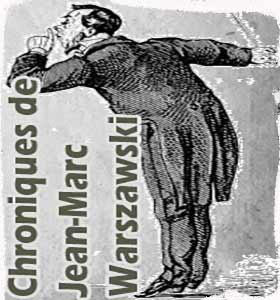
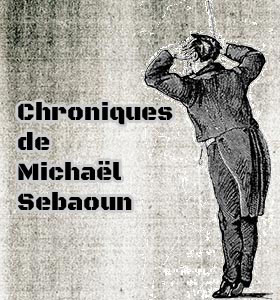
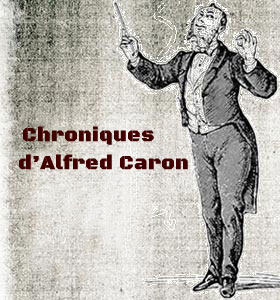
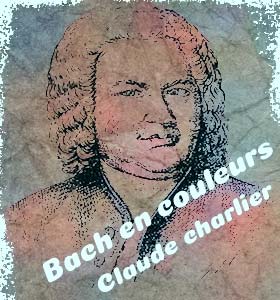
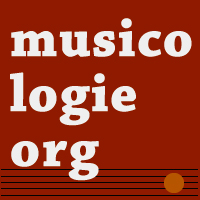 À propos - contact |
S'abonner au bulletin
| Biographies de musiciens | Encyclopédie musicale | Articles et études | La petite bibliothèque | Analyses musicales | Nouveaux livres | Nouveaux disques | Agenda | Petites annonces | Téléchargements | Presse internationale | Colloques & conférences | Collaborations éditoriales | Soutenir musicologie.org.
À propos - contact |
S'abonner au bulletin
| Biographies de musiciens | Encyclopédie musicale | Articles et études | La petite bibliothèque | Analyses musicales | Nouveaux livres | Nouveaux disques | Agenda | Petites annonces | Téléchargements | Presse internationale | Colloques & conférences | Collaborations éditoriales | Soutenir musicologie.org.
Musicologie.org, 56 rue de la Fédération, 93100 Montreuil. ☎ 06 06 61 73 41.
ISSN 2269-9910.

Vendredi 24 Janvier, 2025

